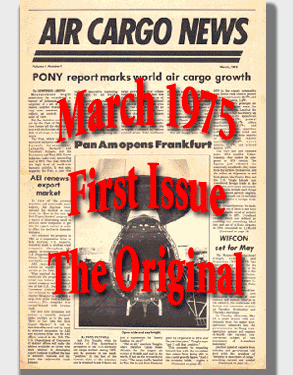
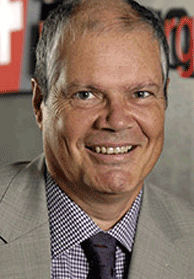 Recently,
as part of a series of excellent if not overlooked presentations at the
Air Cargo Handlers Conference in Milan, Oliver Evans, Chief Cargo Officer,
Swiss WorldCargo took the podium to present a fresh angle on e-freight. Recently,
as part of a series of excellent if not overlooked presentations at the
Air Cargo Handlers Conference in Milan, Oliver Evans, Chief Cargo Officer,
Swiss WorldCargo took the podium to present a fresh angle on e-freight.
In a reality check presentation, Oliver
noted that as a complex industry with an e-freight target to remove 20
documents, air cargo is still struggling with the e-AWB, and what is perhaps
even more startling, Evans went on to say, is that as an industry we should
be ashamed of our current progress.
Evans also mentioned that we currently viewed
the starting point of the supply chain as the e-AWB and e-HAWB, whereas
in reality the process starts far before acceptance, and we should also
include the process that takes the shipment from shipper to ready for
carriage.
There also needs to be a single acceptance
process for ease of processing at the airline or handling agent premises.
e-freight @Switzerland is a must and requires paperless communication
across the supply chain. Oliver believes that piece level tracking, with
a unique id number for parcels, is also a must, using RFID technology
as applicable.
Scanning by the handling agent will also
provide seamless integration and will contribute to the success of other
projects such as e-cargo and C2K.
Meanwhile, Swiss WorldCargo has adopted
a single e-AWB process.
After paperless acceptance at Swiss Airports,
printing of the air waybill will take place at the hub only when needed
by destination.
In terms of e-commerce, Swiss is looking
to benchmark against integrators and integrate with freight forwarder
and ground handler systems.
As one would expect, Swiss are keen to progress
with e-AWB and appear to be making strides in Switzerland.
It is made slightly easier in that the large
forwarders, who have committed to e-AWB, account for a significant part
of the air cargo business in Switzerland.
No doubt, it will be far more challenging
where SME forwarders dominate the market and for e-AWB to be successful,
the industry cannot afford to neglect this stakeholder group.
It is also apparent that the productivity
gains to be achieved by removing the paper, understood by larger forwarders,
still have to be recognized by smaller forwarders.
We have to agree with Oliver, that as an
industry we should be ashamed at the slow progress, and while IATA is
upbeat about recent figures, the small percentage gains are not significant
enough to achieve real savings.
As an industry, we need to do much, much
more . . .
Geoffrey

 Michel
Fiorani, (left) manager ground handling contracts, Cargolux, and Peter
Scholten, VP commercial, Saudi Arabian Airlines, were together recently
on a panel at the Milan Ground Handling Conference. Michel
Fiorani, (left) manager ground handling contracts, Cargolux, and Peter
Scholten, VP commercial, Saudi Arabian Airlines, were together recently
on a panel at the Milan Ground Handling Conference.
Their comments could be viewed as a primer
for anybody looking to maximize their market reach, as 2015 readies to
enter center stage in less than 90 days.
Saving the best for last in the year?
Read on!
Michel posed the question:
“What is an emerging market?”
Emerging markets is a term coined by the
World Bank International Corporation, and is defined as follows:
“A country making an effort to improve
its economy and reach the same level of sophistication as countries termed
as developed.”
The trend is moving that prediction away
from China to emerging markets, but there are downsides, including corruption,
customs complexity, human rights issues, poor transport infrastructure,
and security. Michel took the opportunity to focus on five emerging markets:
Vietnam
In 20 years Vietnam has moved from agriculture
to manufacturing.
Its strengths include electronics and textiles,
skilled and low cost labor, and location.
The opportunities include the fact that
Vietnam is attracting investment from key Asian economies.
The weaknesses include infrastructure, corruption,
and a lack of capital to invest in research and development.
Threats include the non-privatization of
public companies, and essential economic reforms are not steered by government.
Kenya
Strengths include a stable political environment
and a diversified economy. Weaknesses include corruption, low labor productivity,
and seasonal peaks.
Likewise, opportunities include labor availability,
flexible labor relations, and investment laws.
Threats include security, violent crime,
and terrorist activity (Somalia).
One major challenge is the delivery of flowers
to airport.
Flowers are cut as close to shipping time
as possible and the entire flower export process relies on power and huge
refrigeration plants.
Furthermore, simultaneous truck arrivals
and departures create bottlenecks.
Nigeria
The consumer base in Nigeria exceeds that
of France and Germany combined. Strengths include large oil resources
and low taxation while weaknesses include heavy corruption and religious
tensions. Threats include distribution of
wealth. Noticeably, Nigeria is a big importer, while Kenya is a major
exporter.
The handling challenge at Lagos is a lack
of space.
South
Africa
Strengths include automotive and mining
industries, financial and business hub, and good relationships with the
West. Weaknesses include currency volatility. Opportunities include close
trading ties with Europe and middle technology systems.
Threats include violent and petty crimes.
Mexico
Strengths include automotive, textile and
electronics industries, and NAFTA agreement.
Weaknesses include an immature transport
network, violence, and a dependence on U.S. markets.
About Saudi
Arabia
 VP
Commercial, Saudia Cargo Peter Scholten shared his considerable knowledge
and hands-on market contact, explaining that Saudi Arabia is the thirteenth
largest country in the world, the nineteenth largest economy, and the
largest oil producer. VP
Commercial, Saudia Cargo Peter Scholten shared his considerable knowledge
and hands-on market contact, explaining that Saudi Arabia is the thirteenth
largest country in the world, the nineteenth largest economy, and the
largest oil producer.
“With a population of 28.3 million,
Saudi Arabia features twenty-six domestic and four international airports.
“Saudi Arabian Cargo Company (SACC)
was incorporated in April 2008, and re-launched with a new corporate identity
in 2012: Saudia Cargo, including GHA activities at DMM, JED, MED, and
RUH.
“Our cargo unit is currently building
new facilities including a new cargo terminal at Jeddah, increasing space
from 33,000 m2 to 120,000 m2.
“Saudia Cargo revenues have increased
significantly over the last 6 years, supported by a passenger fleet of
114 aircraft and 15 freighters (two 747-8f and thirteen 747-400f).”
On the subject of emerging markets, Mr.
Scholten noted that there are many different definitions from bodies such
as IMF, FTSE, Columbia University, etc.
“Easy emerging markets for Saudia
Cargo include Guangzhou and Johannesburg.
"Challenging markets include: Addis
Ababa, with regular embargoes by GHA on imports due to warehouse congestion;
NDJ, with huge royalties as 512b charges; and Dhaka, with check weights
by the staff as GHA performance is not reliable.
"For example, a 747 was found to be
overweight by 8 tons; Khartoum suffered poor security and no exports;
and Lagos/Kano charges a cargo fee of 0.03 USD per kg to airlines for
import cargo.
On Deadline—Peter Scholten departs
his post as vice president commercial effective January 15, 2015,
to pursue other interests, Saudia Cargo said December 1.
Peter joined Saudia Cargo in October 2010. “His contribution
has been instrumental to the growth and positioning of Saudia Cargo
in the global air cargo business,” said Nabil Khojah, CEO of
Saudia Cargo. |
Our Take:
No doubt these very interesting presentations
offer a bright and unobstructed view of why emerging markets pose great
opportunities for a wide variety of stakeholders.
Workshop
Murray
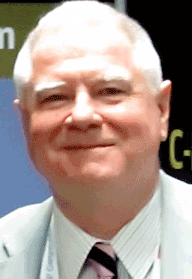 Patrick Murray, head of Calogi, ran a 45-minute workshop in Milan, on
Process Optimization, IT, Industry KPIs, Milestone Measurement, and other
tools.
Patrick Murray, head of Calogi, ran a 45-minute workshop in Milan, on
Process Optimization, IT, Industry KPIs, Milestone Measurement, and other
tools.
Patrick said, of his workshop, “[It
was an] update on progress in process improvement and what the industry
KPIs should be and how we can measure them.
“I would like to thank the people
who supported me in this workshop and the extremely valuable feedback
that they contributed in a very short space of time.
“It was highly interactive.”
Asked for his take on emerging markets,
Patrick added:
“From an e-AWB and e-freight perspective,
emerging markets have everything to gain.
“We do find that internet speeds can
be an issue, but they will eventually get there.
“Calogi are already working with local
stakeholders in a number of emerging markets to improve the way in which
business is being carried out.”
Geoffrey
For Part I click here |
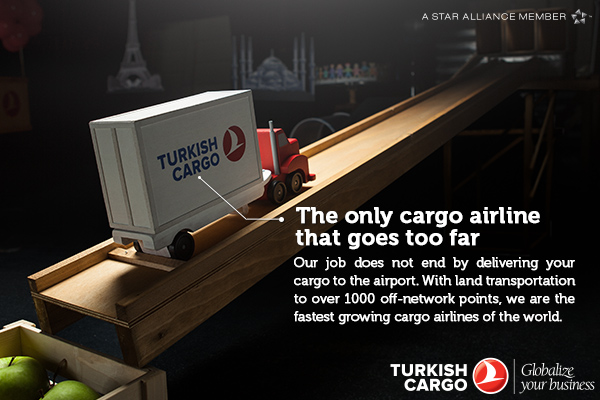




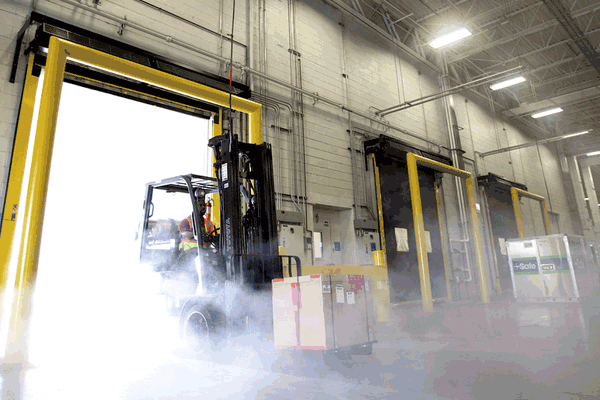
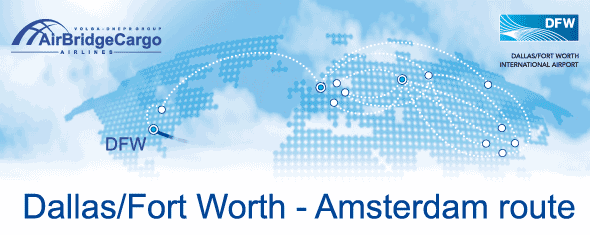
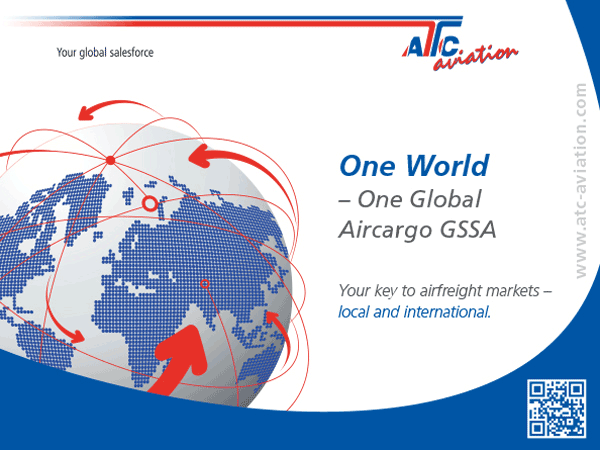

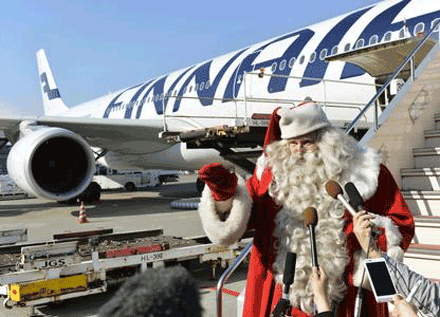 ‘Tis
The Season . . . Santa Claus arrived at Narita on November
28 after flying aboard Finnair, “The Airline of Santa.”
‘Tis
The Season . . . Santa Claus arrived at Narita on November
28 after flying aboard Finnair, “The Airline of Santa.” 